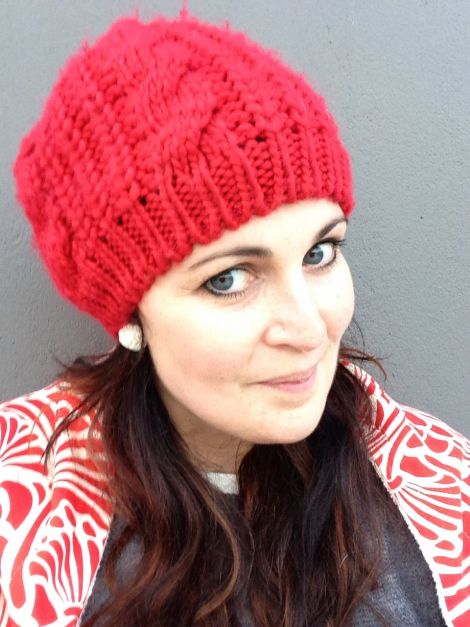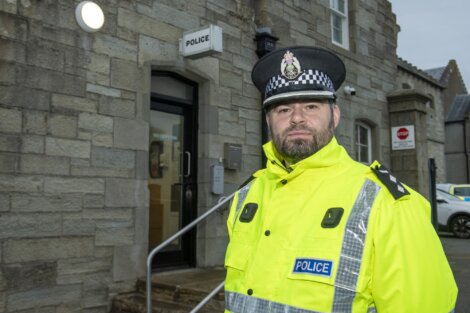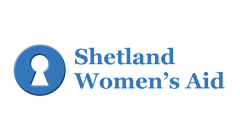News / Charities welcome moves to tackle spiking as police chief makes commitment to safe festive season
More work needed to eradicate gender-based violence, Compass Centre and Shetland Women’s Aid say
MOVES to make spiking a criminal offence in England and Wales have been welcomed by two isles-based charities.
Shetland Women’s Aid (SWA) and The Compass Centre both backed the proposals as one positive step in ongoing efforts to eradicate violence against women and girls.
While spiking is not currently a criminal offence in Scotland, it can be prosecuted under the common law offence of drugging.
The Scottish Government has said it has “no plans” to make spiking a criminal offence in itself presently.
But it is thought that might change if Prime Minister Sir Keir Starmer’s efforts to tackle violence against women and girls are seen to be a success south of the border.
SWA’s manager Laura Stronach said it would welcome and support any measure from either the UK or Scottish governments to eradicate violence against women and girls.
She said they would “strongly encourage” local bar staff – including those in community halls – to undertake basic training on this.
“While initiatives like deploying plain-clothes police officers in pubs and clubs may offer additional support, addressing violence against women and girls requires broader systemic changes,” she said.
“For instance, improving how incidents of spiking are reported and prosecuted is crucial to protecting women and girls.
“To truly eradicate violence against women and girls, we must embrace a cultural shift across all sectors – from public services to households.”
“Protecting our community is everyone’s responsibility, and we all have a role to play in educating and empowering each other to challenge and call out violence against women and girls wherever it occurs.”
Stronach said it was easy to imagine spiking does not happen in Shetland, adding “but sadly, it does”.
“SWA is here for women and young people in Shetland who have experienced any form of violence, including being spiked.
Become a member of Shetland News
“We are here and ready to listen to anyone who does need support.”
Compass Centre managing director Lisa Ward said they also welcomed the UK Government’s move to make spiking a criminal offence.
They said they hoped the offence had been “consulted upon with those directly affected by the issue to ensure that it makes a positive contribution to ongoing efforts to tackle this crime, and gender-based violence across the country more broadly.”
“The announcement is primarily focussed on the issue of spiking on nights out and includes a significant commitment towards delivering training to staff in bars and nightclubs on how to spot and prevent incidents, support victims, and help police collect evidence,” they said.
“We welcome the UK Government’s commitment to tackling spiking in these settings but would be keen to understand more about how this training has been developed, what the evidence-base is, and how the programme will be evaluated for safety and effectiveness once it has been rolled out.”
Products such as drinks covers are often used as a preventative measure against spiking.
Ward said the Compass Centre’s young activists group BEE (Bold, Equal and Empowered) have even designed their own anti-spiking drinks covers, which will be distributed at events throughout Shetland.
However, Ward said that while there was a perception that spiking primarily happens in pubs and clubs – and is carried out by unknown attackers – they said they knew from work with survivors it also happens in the home and workplace.
They pointed to the highly publicised case of Gisèle Pelicot, a French woman who was drugged and abused for years by her husband and over 50 other attackers, as evidence of this.
“We would be keen to hear more about how the UK Government plans to tackle drug assisted sexual assault in other settings beyond pubs and clubs, and further, how it plans to address the root of the issue to make lasting change,” Ward said.
“We believe that preventing spiking in a meaningful way will require focussed engagement with the reasons that people choose to spike.
“People of all genders may experience spiking, and people of all genders may spike others.
“We are heartened to see the UK Government recognise that spiking is a form of gender-based violence, and to hear that it is committed to tackling violence against women and girls more broadly, but we would be keen to know more about what will be included in this wider commitment.”
Police chief inspector Chris Sewell said he and the local police team are committed to ensuring women and girls can celebrate the festive season safely in Shetland.
“We work closely with a range of partner agencies including Shetland Women’s Aid to ensure this is the case,” he said.
“If you have concerns about someone’s safety, in whatever form that takes then please let us know and we can take appropriate action.
“We know that domestic violence is a concern for many during the festive season and we would urge anyone with concerns to let us know.
“In public, we are working with a range of partners, both locally and nationally, to ensure licensed premises are safe spaces for all.
“Spiking isn’t an issue we have been widely aware of in Shetland but we would urge everyone going out this festive season to be vigilant and to look out for their friends in public spaces to ensure everyone is safe.”
- If you are worried you may have been spiked, seek medical advice as soon as possible.
- If you wish to report this to the police, it is important to do this as soon as possible as traces of drugs can leave your system very quickly, along with other forensic evidence.
- If you are not sure about reporting to police, the Sexual Assault Referral Centre (SARC), based at Gilbert Bain Hospital in Lerwick, is a self-referral service for anyone, of any gender, aged 16+, who has been recently raped or sexually assaulted. The service stores forensic medical evidence for up to 26 months, meaning that people do not need to make any immediate decisions about whether to report to the police. People can refer themselves to a SARC by calling their dedicated number, which is available 24/7 and free from landlines and mobile: 0800 148 88 88.
- If you need to speak with someone about what happened, you can contact The Compass Centre by calling 01595 747174 Mon-Thurs 9am-1.30pm, emailing contact@compasscentre.org, or filling out the referral form at compasscentre.org/referral-form/
- You can contact Shetland Women’s Aid on 01595692070, or email office@shetlandwa.org
Become a member of Shetland News
Shetland News is asking its many readers to consider paying for membership to get additional features and services: -
- Remove non-local ads;
- Bookmark posts to read later;
- Exclusive curated weekly newsletter;
- Hide membership messages;
- Comments open for discussion.
If you appreciate what we do and feel strongly about impartial local journalism, then please become a member of Shetland News by either making a single payment, or setting up a monthly, quarterly or yearly subscription.



































































